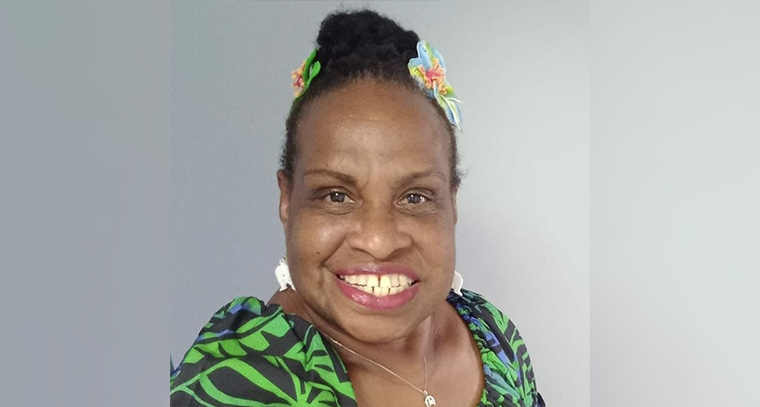Indigenous Language Interpreting in Queensland

Interpreting was actually a bit of an unexpected career path twist for me!
I graduated from linguistics at Batchelor College in the Northern Territory(NT), looking at a career in academia, but was offered the lecturer position for the Diploma of Interpreting, working with Aboriginal language interpreters from NT, South Australia (APY Lands) and Western Australia.
When I got back to Queensland in the late 2000s, well, word got around somehow, and I got involved with local language service providers. I started translating for them. They offered me interpreting jobs, but I turned them down. I was a fluent language speaker of two languages, I had worked as a ‘family interpreter’ going to Centrelink, filling out forms and that kind of thing. I knew interpreting theory, but I didn’t have the qualifications to practice.
I investigated and realised that Indigenous language interpreting qualifications were nearly non-existent in Queensland. There had been some attempts to get things going, some people had been trained and the odd job request came through, but it was lacking. I wanted to fix the problem. I wanted to establish that industry in Queensland, like they had in NT and the Kimberley. I knew we had to get up to speed and benefit from the services of qualified interpreters like in other states and territories. What’s more, we need systems and services that work across the borders because we are mobile people! People move and come to Queensland for health services, education, work or court cases every day. There is constant cross border activity.
I wanted us to establish standards. People here were doing it with no qualifications and no linguistic background. They weren’t aware that interpreting was a profession with ethics and that required qualifications and standards. And so in 2014, Aunty Rose (MacRose Elu) and I undertook the test and got accredited with NAATI in both Yumplatok and Kalaw Kawaw Ya.
That revived it.
After the haphazard efforts in Queensland, it felt like the start of a groundswell movement. Before, there had been no comprehensive support from the top or bottom, just some passionate people in the middle. With the support of NAATI and the Commonwealth Government, and 2M Language Services recruiting and booking jobs, being able to connect with Kimberley Interpreting Service (KIS, now Aboriginal Interpreting WA – AIWA) and the Aboriginal Interpreter Service (AIS) in the NT through the NILIAC, things have been building. Industry and community awareness of interpreting services is growing. Interpreting and translation are not something that stand alone though, they are part of a cultural renaissance in Queensland. Projects and committees like QILAC (Queensland Indigenous Languages Advisory Committee) are getting off the ground. We are now in the UN International Decade of Indigenous Languages (2022-2032).
Here is my wish list for Indigenous language interpreting in Queensland: I would like to see the establishment of an Indigenous languages interpreting service in Queensland, certification in translation in Indigenous languages, I’d like to see more and more of our mob gain qualifications and certificationin interpreting, to the highest levels. Mo re trainers and examiners. And that the engagement of interpreters, and government messaging in Indigenous languages as well as other languages, is part of normal practice. And that we deliver a high standard of service nationwide.
Leonora Adidi is a Torres Strait Islander from the Suy-Baydham Clan of Bamaga and Saibai. She is a linguist, fluent in Kalaw Kawaw Ya and Yumplatok, a Certified Provisional Interpreter (CPI) in both languages, and passionate about preserving and revitalising Aboriginal and Torres Strait Islander culture and heritage. Leonora has been the Chair of NAATI’s National Indigenous Languages Interpreting Advisory Committee (NILIAC) since 2020, has supported
as a mentor at NAATI workshops for Aboriginal and Torres Strait Islander interpreter candidates and assisted with test delivery for CPI Yumplatok testing.
